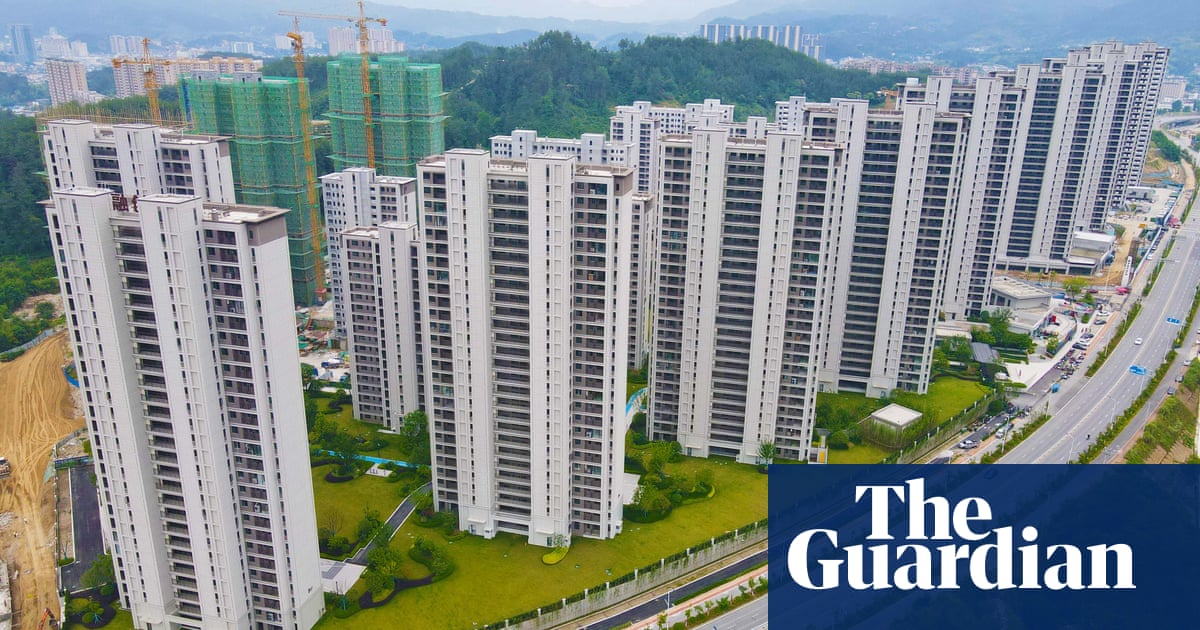- cross-posted to:
- [email protected]
- cross-posted to:
- [email protected]
The industry that has traditionally powered about a quarter of GDP has been in a downward spiral that policymakers have struggled to halt
All across China, from Beijing in the north, to Shenzhen in the south, millions of newly built homes stand empty and unwanted. There were nearly 391m sq metres of unsold residential property in China as of April, according to the National Bureau of Statistics. That is the equivalent of Manchester and Birmingham combined – and then some – sitting as vacant, unwanted property.
This glut of idle property has caused a headache for the government, shaken the world’s second largest economy and raised tensions over the purpose of housebuilding in a nation where property investment had been viewed as a safe bet.
Since the real estate sector was sent into a tailspin in 2020, caused by the pandemic and a sudden regulatory crackdown, the industry that has traditionally powered about one-quarter of GDP has been in a downward spiral that policymakers have struggled to halt.
The crux of the problem is that, with shaky faith in the economy and big property developers failing to deliver on paid-for apartments, potential homebuyers are keeping their money out of the market.



Tell me about it. I’m in the middle of construction right now, and the various hoops I’ve had to jump through and mazes of codes I’ve had to navigate are insane. And it all makes things so much more expensive. And the number of inspections and permit plan check meetings I’ve had to do has taken so much of my time.
I probably shouldn’t have tried to GC this myself.
Remember that all of those regulations are for a reason. Sometimes the reason is "contractors donated money to an elected official, but it’s usually a good result. It’s better to have higher quality than lower.